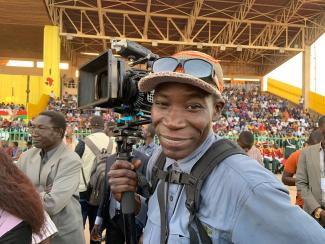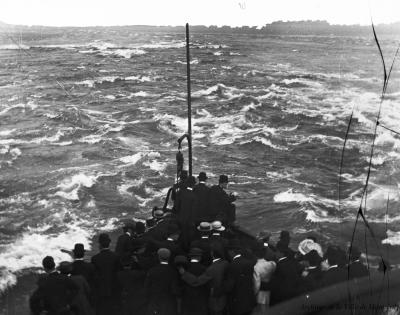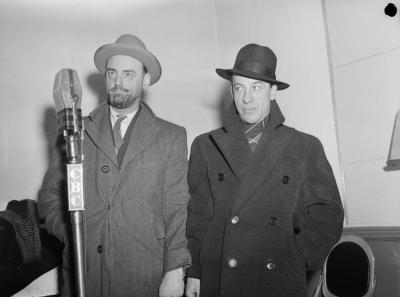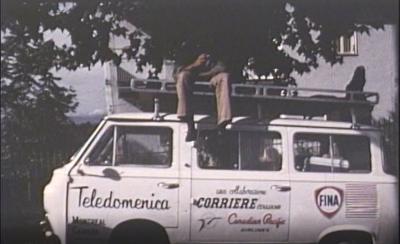This documentary made for the 25th anniversary of the Centre Afrika highlights the organization’s people-centred approach in supporting African immigrant integration into Montréal society.
For over 30 years, Centre Afrika in Montréal has been helping Africans integrate into Quebec society and the job market. The community centre partners with organizations in different domains. A diverse range of individuals, associations, community organizations, artists and artisans participate in Centre Afrika’s activities and are actively involved in developing initiatives and projects.
The documentary Centre Afrika, 25 ans d’engagement au cœur de la diversité (Centre Afrika, 25 years of dedication to diversity) was directed by Hyacinthe Combary. The film was produced in celebration of the Centre Afrika’s twenty-five years of existence and the major cultural event 10 Journées Africaines. Through a combination of interviews, observation, and archival footage, Combary documented the wide range of activities the centre carried out in 2015, offering an overview of the Centre’s work. Combary also presents the richness and diversity of Africa and the Centre Afrika’s respectful, human-centred approach, which places an emphasis on welcoming, listening, and supporting Africans as they settle in Montréal.
—
Short version, 18 min 31 s
Hyacinthe Combary: filmmaker
Hyacinthe Combary

Hyacinthe Combary is a film director, cameraman, and producer. He trained in film in his home country, Burkina Faso, where he worked for national television, marketing agencies, and production companies. In July 1999, he immigrated to Québec. He quickly engaged with Québec cinema, collaborating on Philippe Falardeau’s La moitié gauche du frigo (The Left-hand Side of the Fridge) and several documentary films.
Combary won the National Film Board of Canada’s Nouveaux Regards competition, which allowed him to make Histoire de sable (Tales of Sand and Snow) in 2004. The documentary created a space for dialogue between the Gourmantche tribe of Burkina Faso and the Atikamekw of Northern Quebec. In 2006, he cocreated Miroir en face (Mirror Image), the story of an exchange between Indigenous youth from the Cree community of Chisabi and young Africans in Dogon country, Mali. Miroir en face was the official selection at the 2007 Pan-African Film & TV Festival of Ouagadougou (FESPACO) and winner of best Canadian documentary at the 2007 Reelworld Film Festival in Toronto. In 2006, he worked with Indigenous youth to teach them camera skills for the television show La course autour de la grande tortue. In 2007 and 2008, he was the cinematographer for two feature films about Haiti: Les amours d’un zombi (The Loves of a Zombi) and Les marrons de l’alphabet.
In 2004, Combary launched a filmmaking competition called 72 heures chrono. He is also the founder of BaobabWebTV. Since 2010, he has produced and broadcast content on cultural realities, social issues, and cooperative international initiatives that have the ability to support solidarity between nations. With his team at BaobabWebTV, he has created these “chronos” (or 72-hour makeathons) and audiovisual training workshops in Africa, the Caribbean, and Montréal. Hyacinthe Combary’s connections in film and television run between Africa and Quebec. In 2018, he worked on two African feature films as a cameraman: Duga, les charognards and L’ombre de la muse.


